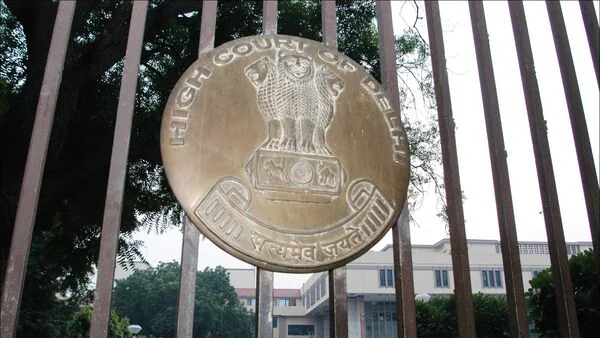Delhi High Court To Decide How Companies Can Challenge Anti-Dumping Duties
The matter centres on the Finance Act, 2023, which limited the powers of the Customs, Excise and Service Tax Appellate Tribunal (Cestat) in hearing challenges to anti-dumping duties imposed by the Union government.
Also Read | India initiates anti-dumping probe into import of polyethylene from 6 countriesBefore the amendment, companies could challenge both the government's final duty orders and the Designated Authority (DA) technical findings under the ministry of commerce and industry at Cestat .
The 2023 amendment retrospectively narrowed this scope, allowing appeals only against the DA's findings.
On 22 September, a division bench led by Justice Pratibha Singh stayed Cestat's August ruling, which had held that the 2023 amendment had not yet come into effect and that the tribunal retained the power to hear anti-dumping appeals. The bench said it will examine whether the Customs Tribunal can listen to appeals by companies challenging government anti-dumping notifications.
Also Read | India moves to shield steelmakers with duty on Vietnamese importsWhile India's anti-dumping framework is primarily overseen by the Directorate General of Trade Remedies (DGTR) , which investigates dumping and recommends duties to the government, the final imposition rests with the Union government. In comparison, other major economies offer broader avenues for judicial review. In the US, companies can appeal anti-dumping duty decisions to the Court of International Trade, which reviews both the technical findings and government-imposed duties. Similarly, in the European Union, challenges proceed through the General Court and, if needed, the Court of Justice of the EU, allowing a comprehensive review of both investigative assessments and the final measures.
Before the amendment, India's anti-dumping process involved the DA investigating whether imported goods were being sold at unfairly low prices-so-called“dumping”-and whether this caused injury to the domestic industry. The DA would recommend a duty based on its findings, but the Union government had the final say, issuing a notification to impose, modify, or reject the duty. Companies could then challenge both the DA's technical determinations and the government's final order at Cestat, giving them multiple avenues to contest duties.
Also Read | What's the fuss about iron ore export duty and why does it matter?The Finance Act, 2023, however, limited Cestat's powers, applying it retrospectively from 1995. This means companies can now appeal only against the DA's determinations or reviews, preventing direct challenges to government-imposed duties at the tribunal. It effectively bars importers from directly contesting government duty orders at Cestat, potentially requiring them to approach the High Court or other legal channels instead.
Legal challengeThe issue came to the fore when EssilorLuxottica Asia Pacific, a global lens manufacturer, challenged India's anti-dumping duty on semi-finished ophthalmic lenses imported from China. While hearing this case in August, Cestat ruled that the 2023 amendment had not yet taken effect, as the government had not issued a separate notification, and retained jurisdiction to hear the appeal.
This prompted the Union government to approach the Delhi High Court, asserting that the amendment is already in force and that Cestat lacks authority to hear such appeals.
“For more than two years, the Cestat's Anti-Dumping Bench has not heard any appeals, a void deeply felt across the industry. The retrospective amendment to the appeal provisions introduced by the Finance Act, 2023, created confusion over the tribunal's jurisdiction in cases where customs notifications were issued by the finance ministry,” said Devinder Bagia, executive partner at law firm Akshmikumaran & Sridharan, representing companies challenging the amendment.
Some experts believe the case could significantly shift India's anti-dumping framework.
“Companies can no longer challenge both the DA's recommendation and the government's decision at Cestat; they must focus on the DA's determination directly. The practical impact is higher litigation costs and fewer avenues for importers,” said Lakshya Gupta, partner at Emerald Law Offices.
Ambarish Sathianathan, partner at Economic Laws Practice, suggested that companies still have ways to challenge anti-dumping duties. They can approach the Directorate General of Trade Remedies (DGTR) to contest final findings, seek reviews of duty margins-including mid-term, sunset, or anti-absorption reviews-or, if needed, file writ petitions in the High Court.
Legal Disclaimer:
MENAFN provides the
information “as is” without warranty of any kind. We do not accept
any responsibility or liability for the accuracy, content, images,
videos, licenses, completeness, legality, or reliability of the information
contained in this article. If you have any complaints or copyright
issues related to this article, kindly contact the provider above.
Most popular stories
Market Research

- New Cryptocurrency Mutuum Finance (MUTM) Raises $15.8M As Phase 6 Reaches 40%
- Bydfi Joins Korea Blockchain Week 2025 (KBW2025): Deepening Web3 Engagement
- Yield Basis Nears Mainnet Launch As Curve DAO Votes On Crvusd Proposal
- 0G Labs Launches Aristotle Mainnet With Largest Day-One Ecosystem For Decentralized AI
- Ethereum-Based Defi Crypto Mutuum Finance (MUTM) Raises Over $16 Million With More Than 720M Tokens Sold
- Fintech's Gender Gap In Focus: Drofa Comms' Women Leading The Way Joins Evolvh3r's She Connects At TOKEN2049






















Comments
No comment